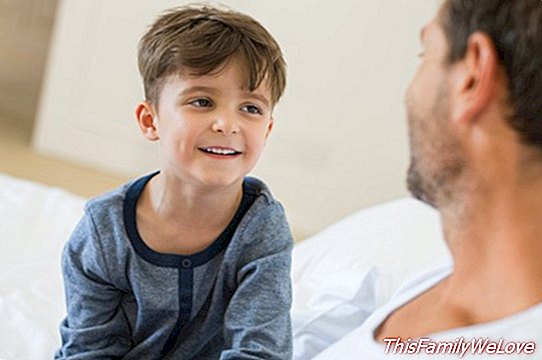A new study reveals more data on the origin of stuttering
You know what it is, you know how to treat it, but you do not know what it is that produces it. The stammering It is a disorder in speech well known to all but whose origins are unknown with certainty. There has been talk of genetic inheritance, a greater difficulty of learning, but nobody has really approached what start this problem.
Now a new study conducted by the Institute of the Mind in Development, belonging to the Pediatric Hospital of Los Angeles, has found a new avenue of investigation that could explain the origin of the stammering. An explanation that has been found after analyzing the brain of several children suffering from this disorder in speech.
Stuttering: altered circuits in the brain
To learn more about what happens in the brain of a stuttering person, these researchers analyzed the brains of 47 children and 47 adults, including people who stuttered and people who did not. For this review, images of Proton ERM in order to analyze the circuits in this area and detect variations between people with this disorder and others who do not.

After analyzing the metabolism of brain cells, the researchers noticed that some areas of this area of the body were altered in people who stuttered. That is to say, the regions affected and linked to this disorder included a network of speech production that has to do with the regulation of attention; and the emotional and memory network, which is involved with the regulation of emotion. Greater modification in this system, supposes more level of this variation in the communication.
An alteration in the circuits that could show that the origin of stuttering originates in the brain with a neural network that regulates speech in these people in a different way. Also, as the doctor indicates Bradley Peterson, author of this research, the information that has been gathered corroborates the thesis that this disorder originates in the brain.
Talk to a stuttering son
Stuttering is a serious problem that affects many children, not only because it causes problems when communicating with other people, but because the feeling of shame can make the child feel self-conscious when talking with his peers. Therefore, we must know how to approach these children to help them and encourage them to interact with other people without feeling bad:
- Talk to the child in a way slow and leisurely. When the child tries to say something, you have to let it finish and wait a few seconds before replying.
- Reduce the number of questions what is done to the children. -Use facial expressions and any other type of non-verbal communication to dialogue with the child.
- Dedicate time every day to take care of children. Moments of calm and calm to build the trust of these little ones.
- Help all family members learn about the turn taking and to listen. Children who stutter find this way of talking easier when there are few interruptions.
- Observe the mode of interaction with the child. We must increase the moments dedicated to practice speaking with the little ones.
Damián Montero




